Peace And Prejudice: How The Key To Peace Is The Same As The Key To Weight Loss
PEACE AND PREJUDICE: HOW THE KEY TO PEACE IS THE SAME AS THE KEY TO WEIGHT LOSS (Issue 31)
By Diane Gold
Peace among humans stems from sameness, not difference. When we are peaceful, things are harmonious. When we are prejudiced, there is unrest, internal to us and external within our world.
We all breathe the same air, have the same powerful epidermis to protect us (we share this with plants), respirate similarly, replenish regularly, get inhabited by viruses constantly (we share this one with plants and bacteria), are all subject to the perils of weather and do well when we honor ourselves.
BELIEF IN OURSELVES
So, with all these major similarities, what are our differences, other than melanin levels, pride in roots, levels of security, money and intelligence? It’s BELIEF IN OURSELVES, the level at which we LOVE ONE ANOTHER, tolerate, nurture, sanction, recognize and respect one another AND OURSELVES, the level at which we give our neighbor the same courtesy as our family, the same respect we should be giving to ourselves and our fellow humans.
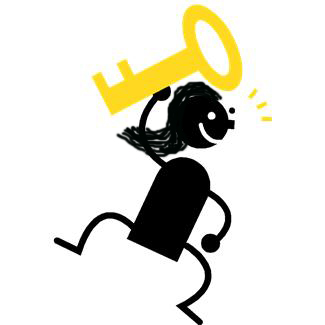 So what is the key to this tolerance that is the same for losing weight, gaining weight, stopping our urges, removing our prejudice? And how do we get it?
So what is the key to this tolerance that is the same for losing weight, gaining weight, stopping our urges, removing our prejudice? And how do we get it?
Those of us whose urges take us to eat too much, drink too much, use or do too much lack a certain security in and love for ourselves. These urges drive our chemicals inside to run in ways we have not yet grasped. Happily, we can learn to understand them and work with them and adjust them.
The same urge chemistry occurs in our body when we cannot tolerate someone else’s beliefs or any of the traits listed three paragraphs below. This chemical imbalance strips us of our ability to be socially acceptable; and we bash, malign, plunder someone else’s appearance or belief. This is social prejudice.
If my family teaches me to believe in the golden calf, your family teaches you to believe in the family religion and our neighbor’s family teaches their daughter to believe that she is the master and controls her own life; these three different beliefs exist. We can learn tolerance if it is doesn’t come naturally by remembering that each of us breathes the same air, eats the same food and gives birth the same way. How much we remember our sameness determines whether we have social prejudice or peace.
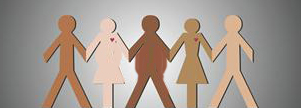 Similarly, the more we develop the ability to control our urges, such as eating chocolate, drinking soda or maligning a religion; the more we can exercise tolerance of ourselves and others.
Similarly, the more we develop the ability to control our urges, such as eating chocolate, drinking soda or maligning a religion; the more we can exercise tolerance of ourselves and others.
So what can we do to raise THE LOVE LEVEL (which comes from BELIEF IN OURSELVES) and give ourselves the love that we deserve that will help curb our urges? What will help our health, our ability to feel good, and help us love our bodies and minds, know that we are assets to the world, know that weight, skin color, style, thoughts, feelings, hairstyle, differences, size, lifestyle, height, preference, orientation, age, race, religion, politics, color, nationality, wealth, language, beliefs, birthplace, traditions, economics do not define whether we are kind, fun, funny, loyal, honest, devoted, confident, uplifting, empathetic, charitable, attentive, considerate, dependable, generous, motivating, patient, perceptive, thoughtful, tolerant, understanding, warm and caring?
And what can we do to remove social prejudices when they appear?
SEEING OUR HOMOGENEITY, THE BIG ACTION STEP
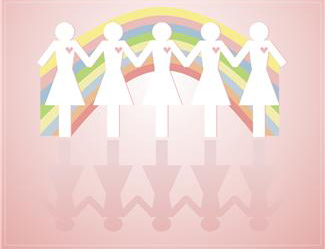 The BIG ACTION STEP, should we choose to take it, is that we must look at our homogeneity. We must celebrate our sameness and be enlightened by it.
The BIG ACTION STEP, should we choose to take it, is that we must look at our homogeneity. We must celebrate our sameness and be enlightened by it.
What if we used it to further our belief system and strengthen our tolerance?
What if we used it to help us be strong individually?
We are all a part of a body of humans and, I believe, can find a way to peace.
Whether we are too slim, too large or just right; we all enjoy the security of shelter, clothing that makes us feel beautiful, friends and family who really care for us; and we all love our own individual hobby, creative passion and cause.
 If I could animate, I would draw a giant globe with people in every country representing all of us. Every time any one of us executed a prejudicial act, even if against ourselves; one of the cutout figures would collapse, only to be regenerated by a positive act, such as generosity or forgiveness. If we saw this visual representation on an ongoing basis, which measured our love and hate, we might more easily cherish, forgive and love each other.
If I could animate, I would draw a giant globe with people in every country representing all of us. Every time any one of us executed a prejudicial act, even if against ourselves; one of the cutout figures would collapse, only to be regenerated by a positive act, such as generosity or forgiveness. If we saw this visual representation on an ongoing basis, which measured our love and hate, we might more easily cherish, forgive and love each other.
Most of us don’t think that feeling bad about ourselves or treating ourselves badly is a negative act. It is, though, an act of social prejudice against ourselves, when we judge ourselves in comparison to runway models if we are not, or in comparison to the lifestyle of the latest female self-made billionaire if we are not.
We say what we feel for ourselves doesn’t affect others, but this is not the truth. Aside from the fact that we are all in this world together, everyone we contact is affected by our good or bad attitude. So how do we mend a bad attitude or social prejudice?
FORGIVENESS, THE NEXT ACTION STEP
1) Forgiving ourselves for whatever we think is wrong with us
2) Forgiving what we did wrong
3) Forgiving someone for having a different trait or belief
4) Forgiving someone for a bad act
5) Forgiving ourselves for being prejudiced against someone
are very hard to do, but great steps to take.
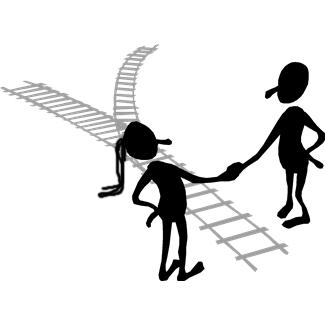 I can think of the many times I have said,
I can think of the many times I have said,
“I forgive him,”
in my head. I have also said,
“I forgive you,”
in person, to someone in my life who did not treat me well. The words have not created absolute forgiveness in me, but it is a work in progress. It is easy for me to forgive myself for the feelings of resentment I still have, but it is hard to forgive with full sincerity.
It is almost unfathomable for me to think how hard it would be to forgive someone who had physically harmed a family member. But, that is how hard peace is.
Over 90% of the people in the United States have a belief system with one deity. It could be as much as 92%. We also believe that this deity does not make mistakes. So, if we are in this category; we know that our lives are not mistakes, so we must forgive ourselves and celebrate our individual situations.
Less than 10% of the population in the United States is firmly rooted in the fact that we are strong, self-sufficient individuals who are part of the balance or order of nature that does not include a deity. This group could be smaller than 8%. (This group often does not list its participants because of the prejudice against it, so statistics are hard to confirm.) If we are in this group, we know we are good and worthwhile by the principles by which we live. Therefore we must forgive ourselves and celebrate our individual situations.
CONCLUSION
Those of us who are tolerant of our similarities must remind those who are not. It is difficult to bring these subjects to the attention of others because feelings run so strongly in each direction.
Prejudice of any kind is prejudice. Some people frown upon people who eat a lot. Others think they are queens. As we grow our spiritual library, we come to terms with how we see ourselves and how we see our sameness. Often times, unless we are experiencing the strife and misery that comes from prejudice, we find it hard to relate to it.
Here’s an example:
If I have grown up an extra, extra love size my whole life, I know what it’s like to be teased about my weight. I am so busy feeling bad about being teased that I do not realize that the teaser’s insecurity is causing the intolerant behavior.
I am grown up, I open a company, have 50 employees. No one has teased me in a long time. One of the people who has been hired has a twitch, which I continually joke about with the other workers. I only consider myself and never consider that the person with the twitch is always in earshot when I tease. She feels pain when I tell my jokes. Why am I doing the same behavior that people did to me? Don’t I remember how it feels? What feeling prompts this intolerance and insecurity on my part?
It’s all about BELIEF IN MYSELF. Poking fun at the twitcher buries the pain I felt when I was teased. It also makes me feel powerful now when people gather ’round and laugh at my jokes. What I don’t consider is that the employees may be gathering around and laughing because they feel sorry for my power tripping from pain. Others may be getting comic relief from someone else’s pain, also a common, but not admirable, human trait. Finally, most of the group is gathering because I am the boss, and it would be impolite not to gather.
SMALL BUT IMPORTANT ACTION STEPS
Here are some small daily action steps to go along with the SEEING HOMOGENEITY and FORGIVENESS, above. When we familiarize our mind to kindness, we become kind. On the other side, when we fuel our intolerance, our prejudice (toward ourselves and others) grows.
1) Upon awakening every day, take 10 seconds to acknowledge that we are as wonderful as our heroes, our love interest, the person we most want to emulate and our role model. This builds self-confidence in a subtle but constant way.
2) After the first 10 second exercise, take 10 seconds to acknowledge that there are no mistakes in the natural order of things. Therefore, we are exactly who we are supposed to be. This will build strength that we are a firm part of the world plan.
3) As we are sitting up from our sleeping position, take 10 seconds to realize our good fortune, such as having the use of our limbs, having the use of our senses, having whatever we do have. Each of us will cherish something else, but this gratitude is important to experience. Gratitude brings humility which brings understanding and peace.
4) Sometime during the week, even if it’s only once:
a. Tell a joke to someone sad
b. Give a homeless person a book
c. Go to http://theanimalrescuesite.com and click a button to give a free bowl of food to an animal. (There are many sister sites here for other causes of your choice.)
The secret behind this action is that, as we are clicking our support for some outside cause, we are curbing our appetite for that very moment and making a difference to someone else. This type of action leads us to develop our character and become stronger to reach our goal in the food department. Both curbing our urge and building our character lead to the likelihood of our being a tolerant member of society.
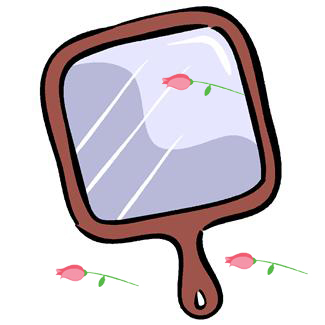 5) Once a day, we should look in the mirror at our lips smiling and know that we have just seen a very worthy human being.
5) Once a day, we should look in the mirror at our lips smiling and know that we have just seen a very worthy human being.
Awareness of Homogeneity + Forgiveness = Urge Control + Peace, Inside and Out.
FEEDBACK
Please leave your comments below. We truly value all of them.
DIANE GOLD, AUTHOR
Diane Gold, Founder of Warriors of Weight, Moms For Healthy Daughters, is a mentor in tai chi, kung fu and meditation, a music, fitness and stress expert and a dedicated mom. She is excited about discovering that the key to peace resembles the key to urge mechanics. She says,
“The key is examining ourselves. When we are willing to look at our urges, we can see our true selves in the mirror. With time, we can mold ourselves to be more in the direction that we wish. It may not be easy, and it will take time. In a lifetime journey, there can be no rush.”

 As someone who enjoys teaching, my main focus in passing on self-help is to teach people that it is easier and more effective to create smooth, one-step transitions in our lives than heart-wrenching, deprivation-based pathways. I am not saying that we don’t have to work hard to achieve change. I am saying that our attitude about the work can come from a place of endowment and not of hardship.
As someone who enjoys teaching, my main focus in passing on self-help is to teach people that it is easier and more effective to create smooth, one-step transitions in our lives than heart-wrenching, deprivation-based pathways. I am not saying that we don’t have to work hard to achieve change. I am saying that our attitude about the work can come from a place of endowment and not of hardship.





